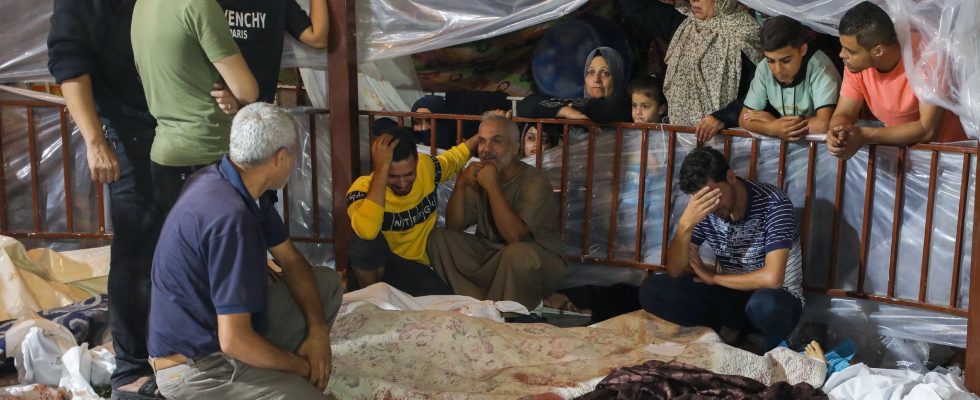In Homo Deus, published in 2015, historian Yuval Noah Harari found the right words to describe terrorism and its astonishing effectiveness. “Terrorists are like a fly trying to destroy a china shop,” writes the Israeli intellectual. “It is too weak to move even a teacup. It finds an elephant, crawls into its ear and begins to roar. The elephant rages with fear and anger, and destroys the china shop.” Today, the elephant may well be the army of its own country, Israel, stunned and enraged after the Hamas attack on October 7, which killed more than 1,400 Israelis.
Chaos as Hamas’ only goal
The armed group knew that, with its thousand fighters, its terrorist offensive was not going to overthrow Israeli power. This attack had only one objective: to bring Israel into a war that destabilizes the Middle East, in order to thrive on chaos. By taking nearly 200 hostages and massacring entire families, the Hamas fly has sowed fear and anger in the Israeli elephant. “We are a traumatized nation, which is just waking up from a nightmare,” an Israeli diplomat explained to us in recent days. “We must get rid of this nightmare, Hamas, at all costs.”
To put an end to this terrorist organization, Israel is attacking its operational base, the Gaza Strip. At the cost of thousands of Palestinian civilian lives, victims of both terrorism and the response to terrorism. For ten days, the images of Palestinian children injured or killed by Israeli bombs have gripped our hearts and consumed the Arab populations of the Middle East with hatred. “Our continent is on the edge of the abyss,” warned the King of Jordan, Abdullah II, Tuesday morning. That same evening, the destruction of the Ahli Arab hospital, in the center of Gaza, pushed him a little further.
The explosion left more than 200 dead, with a toll undoubtedly much more serious. Very quickly, Israel assured that it was not responsible for the strike against the hospital, instead pointing to a rocket from the Islamic Ihad group. In the Middle East, public opinion did not wait for the conclusions of an in-depth investigation to attack the person it judges guilty: demonstrators took to the streets in Jordan, Lebanon, Iraq, Tunisia or Turkey. The embassies of Israel and the United States were targeted by protesters, the West Bank began its uprising and Hezbollah called for a “day of rage” in Lebanon on Wednesday. A spark can set the area on fire.
However, this is the moment chosen by Joe Biden for the most important diplomatic mission of his mandate. By visiting Tel Aviv this Wednesday, the experienced American president was to reassure Israel of the military support of the leading world power in the event of war on several fronts, to send a very clear message to the enemies of the Hebrew state (in particular Iran) and outline solutions with the main Arab powers in the region during a summit in Jordan. But the tragedy at the Ahli Arab hospital and the anger in the streets of the Middle East caused the cancellation of this meeting in Amman, further tarnishing the hopes of diplomatic progress. There remain threats of a humanitarian catastrophe and all-out conflict in the region.
In Homo Deus, Yuval Noah Harari continued his metaphor thus: “The Islamists could never have overthrown Saddam Hussein by themselves. They preferred to enrage the United States with the September 11 attacks, and the United States destroyed the store of Middle Eastern porcelain in their place. And here they are, thriving on the rubble.” Twenty-two years later, Islamist terrorism is still here, and an entire continent continues to pay the price.
